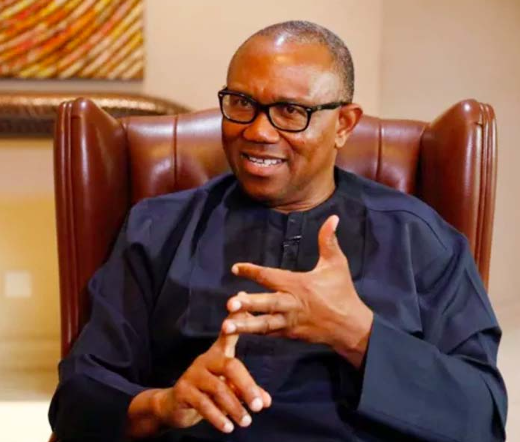Peter Obi, the Labour Party’s 2023 presidential candidate, is once again in the spotlight — this time for his confirmed involvement in a federal task force created during the brutal regime of late dictator General Sani Abacha. In a move meant to silence mounting allegations of complicity, Obi has released a 1996 appointment letter that instead confirms what many critics have long suspected: his ties to a government widely condemned for corruption, repression, and the systematic plundering of Nigeria’s wealth.
Rather than disprove the connection, the letter — dated 24 April 1996 and issued by the Federal Ministry of Finance — places Obi squarely within the machinery of an administration that oversaw one of the darkest chapters in the country’s history. Signed by then Minister of State for Finance, Alhaji Abu Gidado, the document officially named Obi as a co-opted coordinator at Apapa Port for a national Ports Decongestion Task Force established by the Abacha regime.
The task force, which included various operatives deployed to Tin Can Island Port, Murtala Mohammed Airport, and other strategic logistics points, operated under the explicit direction of a government that had long since lost any claim to legitimacy. It was a federal assignment during a dictatorship — not a neutral civic endeavour, as Obi now attempts to frame it.
In his statement accompanying the document’s release, Obi took pains to insist that he had never personally met Abacha and that the role was purely economic in nature. He described his involvement as that of a concerned businessman advocating for faster cargo clearance, not a political actor lending credibility to a tyrannical regime.
But this attempt to rewrite history rings hollow. Whether or not he shook Abacha’s hand is immaterial. The fact remains: Obi accepted an official federal appointment under one of the most reviled military juntas in Nigerian history. In doing so, he lent his name, presence, and influence — however limited — to a system that was actively oppressing Nigerians, silencing dissent, and looting the national treasury.
Obi’s assertion that this was a mere civic duty collapses under scrutiny. He was not just another frustrated trader writing letters to the government; he was an appointed agent of that government, operating within its framework, with direct support from customs and security agencies. That’s not passive engagement — it’s collaboration.
His portrayal of transparency also invites scepticism. The release of this letter only came after public pressure and political heat. If Obi truly believed in full accountability, why was this document not voluntarily disclosed during his presidential campaign, when his record was under national review?
Obi claims the letter is “copious evidence” of his innocence. In reality, it is a stark reminder of how willingly Nigerian elites have worked with despotic regimes when it suits their interests — economic or otherwise. The fact that he now seeks to sanitise that collaboration, painting it as a patriotic act, only adds to the disquiet.
As Nigeria continues its long and painful reckoning with the legacy of military rule, public figures like Peter Obi cannot cherry-pick their narratives. Engagement with a dictator’s regime, no matter how bureaucratic or “non-political,” carries consequences. And no amount of belated document-waving can erase that uncomfortable truth.
Copyright Ships & Ports Ltd. Permission to use quotations from this article is granted subject to appropriate credit given to www.shipsandports.com.ng as the source.

